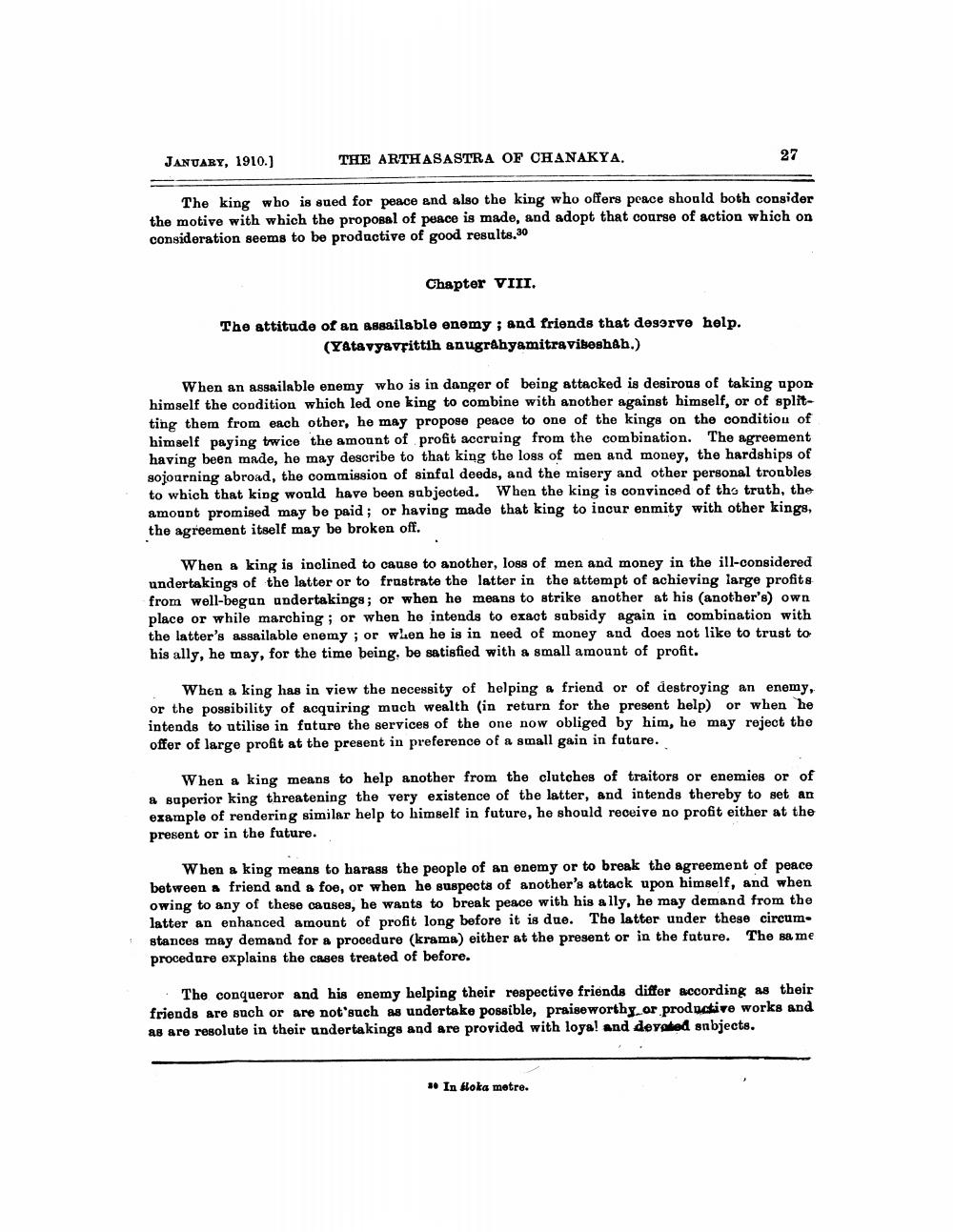________________
JANUARY, 1910.)
THE ARTHASASTRA OF CHANAKYA.
27
The king who is sued for peace and also the king who offers peace should both consider the motive with which the proposal of peace is made, and adopt that course of action which on consideration seems to be prodactive of good results.30
Chapter VIII.
The attitude of an assailable enemy; and friends that degurve help.
(Yatavyavfittih anugrahyamitravikeshah.)
When an assailable enemy who is in danger of being attacked is desirous of taking upon himself the condition which led one king to combine with another against himself, or of splitting them from each other, he may propose peace to one of the kings on the conditiou of himself paying twice the amount of profit accruing from the combination. The agreement having been made, he may describe to that king the loss of men and money, the hardships of sojourning abroad, the commission of sinfal deeds, and the misery and other personal troubles to which that king would have been subjected. When the king is convinced of the truth, the amount promised may be paid ; or having made that king to incur enmity with other kings, the agreement itself may be broken off.
When a king is inclined to cause to another, loss of men and money in the ill-considered undertakings of the latter or to frustrate the latter in the attempt of achieving large profits from well-began andertakings; or when he means to strike another at his another's) own place or while marching; or when he intends to exact subsidy again in combination with the latter's assailable enemy; or when he is in need of money and does not like to trust to his ally, he may, for the time being, be satisfied with a small amount of profit.
When a king has in view the necessity of helping & friend or of destroying an enemy, or the possibility of acquiring much wealth (in return for the present help) or when he intends to utilise in future the services of the one now obliged by him, he may reject the offer of large profit at the present in preference of a small gain in future.
When a king means to help another from the clutches of traitors or enemies or of & superior king threatening the very existence of the latter, and intends thereby to set an example of rendering similar help to himself in future, he should receive no profit either at the present or in the future.
When a king means to harass the people of an enemy or to break the agreement of peace between a friend and a foe, or when he suspects of another's attack upon himself, and when owing to any of these causes, he wants to break peace with his a lly, he may demand from the latter an enhanced amount of profit long before it is due. The latter under these circumstances may demand for a procedure (krama) either at the present or in the future. The same procedure explains the cases treated of before.
The conqueror and his enemy helping their respective friends differ according as their friends are ench or are not such as undertake possible, praiseworthy, or productive works and as are resolute in their undertakings and are provided with loga! and devoted snbjects.
** In floka matre.




